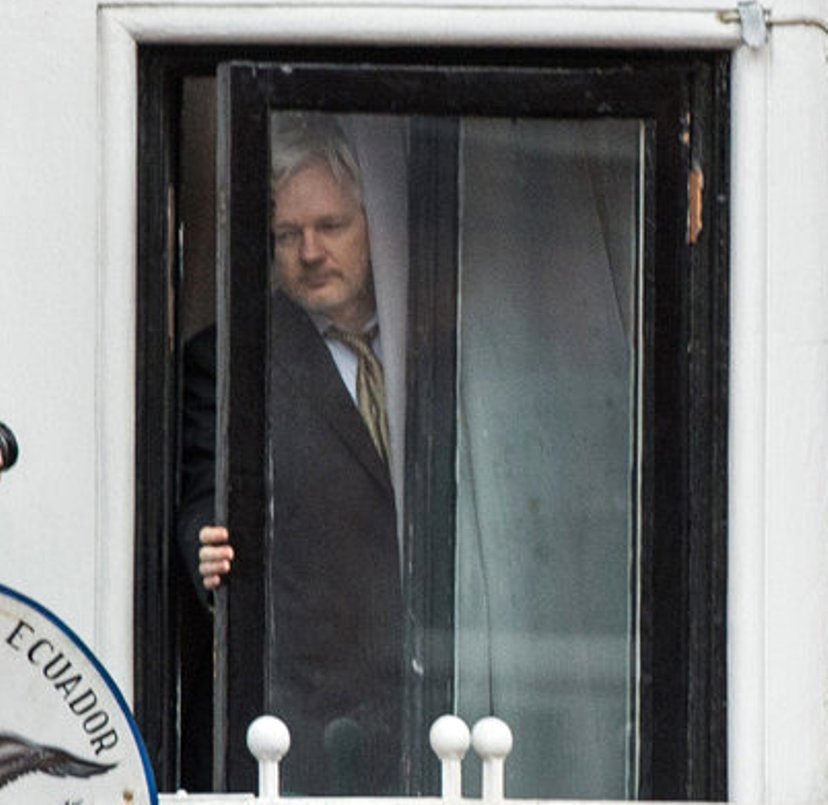On Tuesday, WikiLeaks, the Julian Assange-created so-called “whistle-blower” site, released more than 8,700 classified documents and files, known as “zero day” – detailing all manner of cyber tools used by the CIA to gather information on “bad actors” (individual(s) with the intent on doing serious harm) outside the U.S. It is one of the worst thefts to occur since Edward Snowden.

In a press release, Assange, who lives in the shadow of protection in the Ecuadorian embassy in England, said, “There is an extreme proliferation risk in the development of cyber ‘weapons.’ Once a single cyber ‘weapon’ is ‘loose’ it can spread around the world in seconds, to be used by rival states, cyber mafia and teenage hackers alike.”
Former Secretary of Defense and CIA Director Leon Panetta told PBS reporter Hari Sreenivasan (Mar. 8), “This has been seriously damaging to the CIA and its ability to conduct intelligence operations.
According to WikiLeaks, “the source [of the released documents] details policy questions that they say urgently need to be debated in public, including whether the CIA’s hacking capabilities exceed its mandated powers and the problem of public oversight of the agency.”
So, once again, we have an individual or group, aided and abetted by Assange who seem to have all-knowing, all-seeing insight to be able to determine how these critical tools are possibly being used against U.S. citizens.
Except, they’re not.
Panetta, the CIA chief who headed the hunt and killing of Usama bin Laden, said, “…the CIA does it for intelligence-gathering purposes abroad. It’s not done here in the United States. It’s done abroad. And, for that reason, the CIA has to develop the capabilities that it has developed in order to be able to track those that are known suspects of terrorism.
“There was a national commission that was established to find out why we were attacked on 9/11. And the result of that is that the CIA and other intelligence agencies developed better capabilities to go after terrorists and to try to locate them.
“There is a reason we have not had another 9/11 attack in this country,” Panetta added, “and a lot of that is because our intelligence agencies, our law enforcement agencies are sharing information and gathering information that makes sure we protect the United States.”
“The thing that has a lot of people concerned,” Sreenivasan said in a follow-up, “is when you keep these zero day vulnerabilities to yourself, and you don’t tell Apple or you don’t tell Google or you don’t tell Microsoft, hey, there’s this hole in your software, that identity thieves, other governments could also be using this.
“I think there’s also general discomfort, to put it mildly, with consumers, who say, wait a minute, I thought that my product was safe, but here I don’t necessarily know whether it’s even — my government is looking out for my best interests.”
“The reality is,” Panetta responded, “that what the CIA has done in terms of its capabilities and what it is able to do is done pursuant to the law and is done pursuant to oversight by the Congress and by the Intelligence Committees on the hill.”
“Pursuant to oversight by the Congress,” and the “Intelligence Committees.”
The simple reality is we cannot have ordinary citizens or CIA contractors with partial information debating “in public” the specifics on the tools that are used in keeping us safe. That’s why we have elected officials. Currently, there are 14 members – both Republican and Democrat – on the Senate Select Committee on Intelligence. The House Select Committee is comprised of 13 Republican members and 9 Democrats.
I am willing to trust the oversight of these programs to 36 members of both parties as well as the CIA’s current director, Mike Pompeo.
I am not willing to trust Assange who defended his actions:
“After considering what we think is the best way to proceed and hearing the calls from some of the manufacturers, we have decided to work with them to give them some exclusive access to the additional technical details we have so that fixes can be developed and pushed out.”
The operative word here is, “…what we think…”
As reported by The Wall Street Journal (Mar. 9), “Heather Fritz Horniak, a CIA spokeswoman… said, “The American public should be deeply troubled by any WikiLeaks disclosure designed to damage the intelligence community’s ability to protect America against terrorists and other adversaries,” she said. ‘Such disclosures not only jeopardize U.S. personnel and operations, but also equip our adversaries with tools and information to do us harm.’
“Ms. Horniak said the agency is legally prohibited from conducting electronic surveillance on U.S. citizens at home. And, she said, the ‘CIA does not do so.’ ”
This is not about informing the public of illegal electronic surveillance of citizens. This is not about blowing the whistle on secret government programs that threaten democracy.
This is about the agenda of one individual with a series of computer servers who takes stolen documents, relative to the safety of the country, and dumps them into the public to provide information to our enemies. To believe Assange’s narrative that he’s out to protect the interests of citizens or tech companies is baloney.
Assange didn’t like the manner in which Presidential candidate Hillary Clinton openly criticized him during the Edward Snowden matter, so, with the help of others, he releases private e-mails from her campaign manager.
Assange and WikiLeaks have only one agenda: to destabilize any individual, institution or country it doesn’t like.
While I’m hopeful the FBI and CIA can track down and arrest the individuals involved in stealing the files, make no mistake, the central “bad actor” here is Julian Assange. Period.
Monday: More on this story.
Comments
Leave a Comment











Once again I agree with you 100%, and the fact that this guy is being protected and not turned over to us for prosecution is bothersome as well.